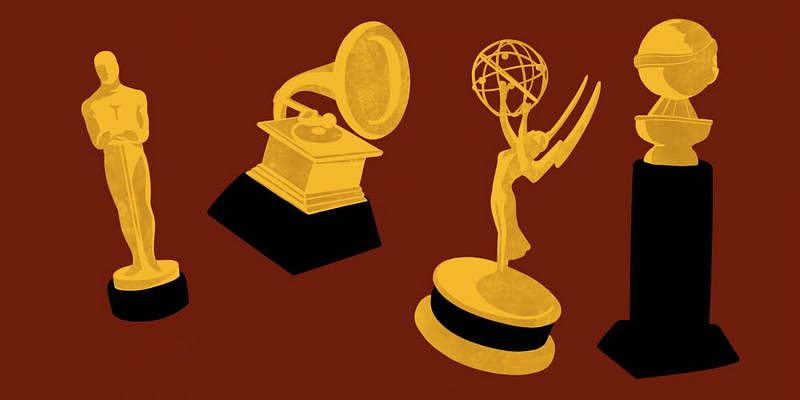
Every year, as “award season” rolls around and creeps its way back into our lives, I find myself a little more jaded about the whole institution than I did the year before. Sure, I loved American filmmaker Noah Baumbach’s
Marriage Story
. But when I first saw the Oscar nominations for Best Actor/Actress in a Leading Role and for Best Actor/Actress in a Supporting Role, I immediately noticed two things: a whole lot of white people and not a whole lot of anybody else!
Even the names of these four major acting awards raise myriad issues. The categorizations force the gender binary. “Actress” has been an outdated term for the majority of my life. But what I find most disturbing is the lack of racial and cultural representation. In 2015, the year of #OscarsSoWhite, all twenty nominees in the major acting categories were white. Here we are in 2020, and the “progress” we’ve made is that 19 out of 20 are white. The only person of color nominated is the dazzling Cynthia Erivo, for her portrayal of Harriet Tubman in Kasi Lemmons’
Harriet
. And, while Erivo’s performance is certainly award-worthy, she notably plays a quintessentially black role — further enforcing the trend that people of color only tend to get recognized for roles which white culture deems to be acceptable/expected. That is not enough.
Immediately, and unqualifiedly, Erivo was tokenized as the only person of color in these categories. The conversation immediately became focused around her racial identity, not around her performance or the cultural significance of the film for which she was nominated. None of the cast members from South Korean filmmaker Bong Joon-ho’s
Parasite
were nominated in any acting category. When a film is nominated for Best Picture, it is difficult to believe that absolutely none of the actors involved in the project were at least in part responsible for the success of the film. These Oscar nominations do not accurately reflect the demographics of Hollywood, our country, or our world. The Academy needs to do better, but it has shown little to no progress.
More bad news: the Oscars are just the tip of the iceberg. This past Sunday, visionary artist Tyler, the Creator won the Grammy Award for Best Rap Album for
IGOR
.
IGOR
masterfully blended the genres of pop, soul, funk, rock, hip-hop, and R&B. It was certainly worthy of an award. But which award? Although Tyler raps on the album, rap is far from the centerpiece, taking a back seat to a combination of lush instrumentals and hard-hitting beats. But because it was a “black” album, the Grammys classified it as Rap. In an interview immediately preceding the Grammys, Tyler commented, “It sucks that whenever we and, I mean, guys that look like me do anything that’s genre-bending, they always put it in a “rap” or “urban” category. I don’t like that “urban” word. To me, it’s just a politically correct way to say the n-word. So when I hear that, I’m just like, why can’t we just be in pop?”
IGOR
deserved to be acknowledged as one of the great musical works of 2019. But the Grammys’ misrepresentation of what kind of work
IGOR
reveals the implicit racism and widespread preconceptions that still pervade the industry.
Issues concerning lack of representation or misrepresentation surely do not solely exist in the vacuum of “award season”. These symptoms of long-term, institutionalized racism do again get highlighted to the masses during this time of year. So, as this award season begins to come to a close, I urge you to consider: Who is being represented? Who is not being represented? Who is being misrepresented? And why?

















